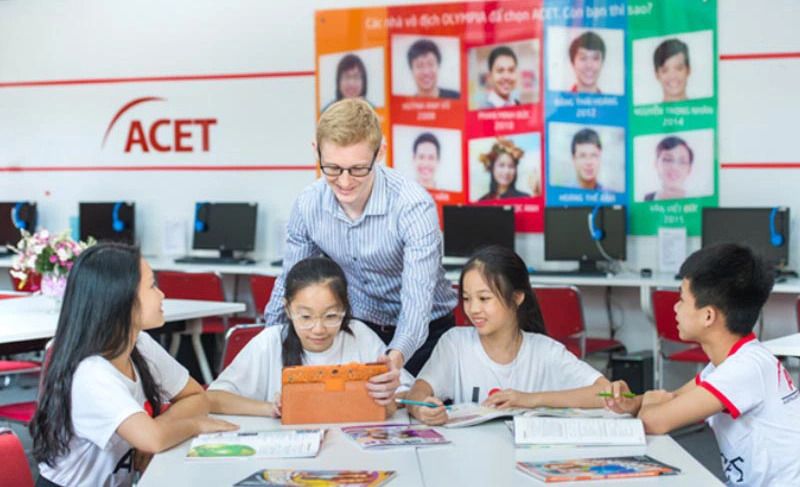The rise of online platforms has significantly transformed IELTS test preparation in Vietnam, prompting traditional training centers to struggle to compete with the convenience, flexibility, and cost-effectiveness of Internet-based preparation courses.
ACET (Australian Center for Education and Training), a prominent English language center under IDP Education Vietnam, recently announced that it will completely cease operations in this Southeast Asian country from December 31 this year.
After more than 20 years of English teaching in Vietnam, ACET will close operations on December 31, 2024, ACET said in a statement, adding that all students currently enrolled will be get support to finish their current course.
A representative of IDP Education, an organization that administers IELTS tests in Vietnam, attributed the decision to close ACET to a decline in student numbers alongside rising operational costs.
In addition, the demand for English learning and the teaching landscape in Vietnam have shifted, particularly in the IELTS preparation sector.
The impending exit of ACET from the Vietnamese market highlights the intensifying competition in IELTS preparation, particularly between established centers and emerging small- to medium-sized institutions.
Truong Le Quynh Tuong, who formerly served as a regional director at an online learning platform, elaborated that the shift to virtual learning has accelerated since the COVID-19 pandemic, resulting in the surging number of online IELTS preparation courses, often run by individuals with high IELTS scores.
Many students have opted for digital platforms that offer flexible, affordable, and personalized study options.
Tuong noted that online IELTS courses have very low operational costs, while physical centers face substantial expenses for premises and facilities.
A leader from a prominent English language center in District 1, Ho Chi Minh City told Tuoi Tre (Youth) newspaper that enrollment in IELTS courses at their center has decreased over 30 percent compared to pre-pandemic levels.
Meanwhile, the number of students in English courses for children and teenagers remains stable.
Many IELTS instructors at the center have had to take on English communication classes for working professionals in addition to their regular courses.
Highly qualified teachers alone are no longer enough to attract students to a language center, as more individuals are achieving high IELTS scores of 8.0-8.5 and starting their own classes, providing students with more options for IELTS training, the leader explained.
Pressure to integrate technology
Thien Thanh, a 27-year-old resident of Ho Chi Minh City, returned to Vietnam after earning his bachelor's and master's degrees from the University of Houston in the U.S. to teach English at various centers.
He then launched his own online classes with a modest investment, upgrading to a premium Zoom account for less than VND500,000 per month ($20).
As his revenue increased, Thanh reinvested it to enhance his social media presence on platforms like Facebook, YouTube, and TikTok, where he created content focused on English learning and IELTS preparation to promote his classes.
Thanh also offers free online learning sessions to raise awareness about his courses.
He added that the flexibility and low cost of Internet-based courses have made them increasingly popular among learners, posing a big challenge for traditional IELTS centers that resist embracing this trend.
Lots of physical centers like Power English are incorporating technology to stay competitive, using hybrid platforms and tech-driven tools to help students improve specific skills, according to Power English CEO Nguyen Hong Tu.
Adoption of AI-driven solutions
AI-driven solutions have also challenged traditional IELTS training centers by offering innovative, adaptive, and highly-efficient approaches to test preparation.
Truong Le Quynh Tuong highlighted the increasing influence of AI in teaching, elaborating that many centers have started using virtual assistants to support student learning.
AI-powered tools can create customized learning paths for each student based on their strengths, weaknesses, and progress.
She expressed her belief that centers that embrace a hybrid approach and incorporate AI-driven tools can attract more students.
Apart from IELTS centers, English language centers in general are under pressure to adapt to modern technology, according to Associate Professor Pham Vu Phi Ho from Van Lang University in Ho Chi Minh City.
Centers that are resistant or slow to adopt technology would find it hard to enhance their teaching quality and operational efficiency, he said.
Like us on Facebook or follow us on X to get the latest news about Vietnam!


















































